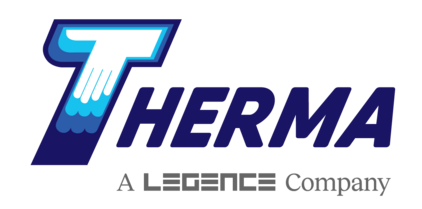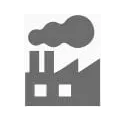It’s critical that buildings containing commercial heating, venting and air-conditioning systems operate at peak efficiency during the summer season. Perform early-summer maintenance on your commercial HVAC system to maximize the chances of your cooling system functioning properly throughout the summer.
Some summer maintenance tasks to do before the hot weather settles in include checking electrical connections and adjustment controls and lubricating all moving components to make sure they are in place and working properly.
Not only is a reliable air-conditioning system important to the comfort of employees, tenants or customers, but a well-maintained commercial HVAC system can decrease operating costs while increasing energy efficiency.
Are Your HVAC Systems Summer Ready? HVAC Summer Maintenance
Give your commercial HVAC systems a summer maintenance checkup before or at the beginning of the summer season to ensure peak performance the moment cooling systems are turned on. This can help ensure that you discover problems that affect efficient operations and could result in major repairs.
Check Outdoor Components
Check your commercial HVAC outdoor components first. Inspect and/or clean, lubricate and clear from obstruction indoor components including the coil and cabinet, drain pans, condense lines, compressor, control box, switches, safety controls, fan and motor blades. Also, check the refrigerant level because if there is a leak, your commercial air-conditioning system will not cool the building properly.
Check Indoor Components
Inspect indoor components, in particular your commercial HVAC air filters and ductwork.
The air filter is an essential part of your HVAC system, and its function is to clean the air before pushing it into your building. Clogged air filters not only reduce indoor air-quality, but increase your energy usage, as your HVAC system runs less efficiently.

Similarly, dirty ductwork forces your HVAC system to work harder over longer periods, also increasing energy costs as well as impacting your building’s indoor air quality.
In addition, inspect and/or clean, lubricate, tighten, replace and test all other indoor components. These include: the blower assembly, belts, combustion blower housing, evaporator coil, drip pan, condensate lines, heat exchanger, duct system, burner assembly, control box, wiring and connections, burner assembly, safety controls, ignition system, flue system, duct system and air filters.
HVAC System Summer Ready: Equipment Inspections
It’s a good idea to have a certified professional inspect all commercial HVAC components and identify any worn or faulty mechanical components. A thorough inspection can prevent costly unscheduled downtime and ensure your building’s HVAC unit is prepared to handle the increased load during the summer months.

Not being proactive regarding getting your commercial HVAC unit summer ready can increase energy usage, equipment, repair and utility costs, in addition to an increase in costs, a decrease in operational efficiency results in an unreliable cooling system.
While you cannot prevent every issue with an HVAC system, there are steps you can take to reduce the chances of problems during the summer season. Being proactive in identifying and preventing potential maintenance problems can contribute to preserving equipment life, efficient operation, and building indoor air quality.
Sources:
- https://donnellymech.com/blog/commercial-hvac-system-ready-summer/
- https://www.ddkmechanicalca.com/how-to-get-your-commercial-hvac-system-ready-for-summer
- https://www.allenstristate.com/tips-for-preparing-your-commercial-hvac-system-for-the-summer/
- https://www.knippservices.com/blog/knipp-equipment-blog/9-fundamental-tips-for-preparing-your-commercial-building-s-cooling-system-for-summer.html
- https://www.hvac.com/blog/commercial-hvac-maintenance-checklist-following/
- http://www.fsec.ucf.edu/en/consumer/buildings/commercial/pdf/sec5.pdf








